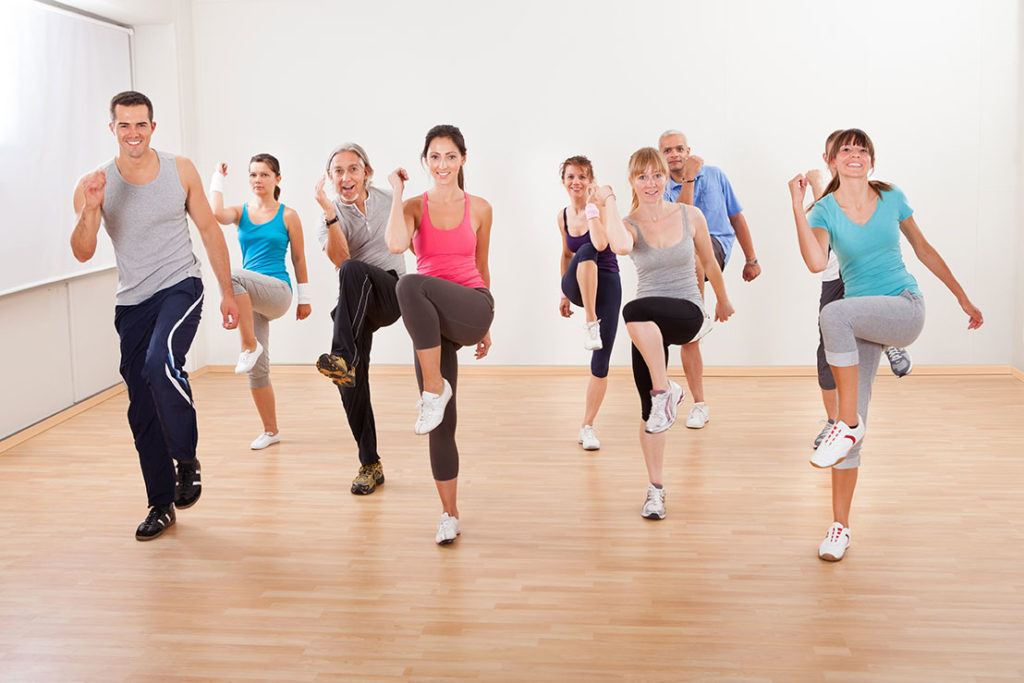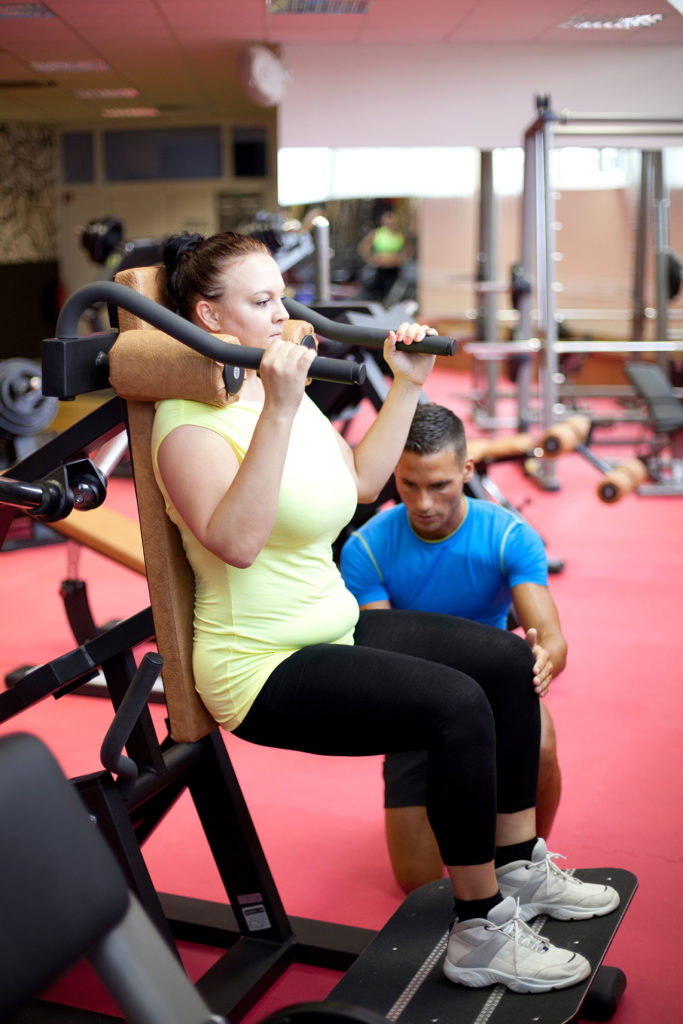Archive for October 2014
Attack of the Diet Saboteurs
It’s an all-too-common scenario: Your clients boast they are eating well and exercising regularly, but they’re frustrated that the scale and pant size won’t budge.
Read MoreCalories or Physical Activity: What’s to Blame for Weight Gain?
We are well aware that Americans’ waistlines have made sizable increases over the past several decades. However, debate over the root of this weighty issue continues. Some say we’re eating more. Others say we’re less active. Many believe both are true. Can a recent report end the debate?
Read MoreTop Exercise Motivators
Do you know what really motivates people to exercise? Recently, researchers from the department of applied human sciences at
Concordia University in Montreal asked people from different age groups what pushed them to pump iron.
The scientists studied questionnaires from 1,885 people ranging in age from teenagers to 50 and older. The questionnaires, covering a variety of areas, including “personal style, activity interests, motives for exercising, and biosocial information,” were completed on touchscreens located in eight branches of the YMCA in Montreal.
Read MoreACE Supports Behavior-Change Counseling
In an effort to improve the health of U.S. citizens, the U.S. Preventive Services Task Force—a volunteer panel of experts established by Congress—has recommended implementing behavior-change counseling for those at risk for cardiovascular disease. In August, ACE released a statement supporting that recommendation.
Read MoreSecrets of Social Media Success
Social media offers fitness businesses an opportunity to market products and services. But there are some best practices to consider when navigating online platforms, explains Rochelle Sanchirico, head of marketing and analytics for Webs.com.
Sanchirico offers these insights to help you maximize your social media presence:
Weight Loss Doesn’t Equal Happiness
People often begin a weight loss journey with high hopes that once they reach their goal, their quality of life will improve. A new study suggests that losing weight isn’t necessarily a ticket to a happier life.
Read MoreInterval Walking and Type 2 Diabetes
Interval-style training is all the rage. While high-intensity formats seem most prevalent, researchers have learned that a less strenuous version—interval walking—may benefit individuals diagnosed with type 2 diabetes.
Read MoreYoga May Help People With Eating Disorders
Educating yoga instructors about eating disorders and offering yoga classes as part of eating disorder prevention programs may help avert these illnesses, according to the author of a review article published in Advances in Eating Disorders: Theory, Research and Practice (2014; 2 [2], 136-45).
Read MoreLiver Injury Due to Herbals and Dietary Supplements Is Up
If you regularly take herbals and dietary supplements, it may be time to reevaluate why you take them and what the potential cost to your health could be. New research published in Hepatology (doi: 10.1002/hep.27317),
a journal of the American Association for the Study of Liver Diseases, shows that liver injury caused by herbals and dietary supplements increased from 7% to 20% in a U.S. study group over a 10-year period.
Recipe for Health: Chicken Tortilla Soup
IDEA member Cappie Geis has had a lifelong passion for exercise, fitness and healthy cooking. She has been teaching group exercise since the age of 20 and is also a certified personal trainer and yoga instructor.
Read MoreCrowdsource Your Eating to Enhance Self-Monitoring
It’s interesting to think that in a world where crowdsourcing didn’t formally exist in the vernacular less than a decade ago, we are applying the practice these days to keep tabs on our eating, among other things.
Read MoreFrequent Restaurant Dining Significantly Raises Calorie Load
If you have road warriors on your client roster, it is probably a challenge for them not only to exercise while traveling but also to maintain a balanced eating plan. New research shows it’s really no wonder they struggle with weight since, on average, eating at restaurants can pack on an extra 200 calories per day.
Read MoreEating More Fish Lowers Risk of Hearing Loss
Hear this! A study from Brigham and Women’s Hospital shows that consumption of two or more servings of fish per week is associated with a lower risk of hearing loss in women.
Published online, September 10, in the American Journal of Clinical Nutrition (doi: 10.3945/ ajcn.114.091819), this prospective study examined over time the independent associations between consumption of total and specific types of fish, long-chain omega-3 polyunsaturated fatty acids (PUFA), and self-reported hearing loss in women.
Read MoreAction TV Content Causes Overeating
Watching television and eating are a deadly duo for people seeking good health. Not only is TV viewing sedentary, but eating while watching tends to be mindless and we consume more without really knowing it.
Now, new research shows there may well be a TV-watching-and-eating
triple threat. The type of television programming
you choose may also be impacting your waistline, say authors of a research letter published September 1 in JAMA Internal Medicine (doi:10.1001/jamainternmed.2014.4098).
How Poor is U.S. Diet Quality?
Though people in the U.S. have done well to improve their diets by reducing trans fat intake, overall dietary quality remains poor ?and disparities continue to widen among socioeconomic and racial/ethnic groups, according to a new study from Harvard School of Public Health.
Read MoreBeans Can Curb Hunger
If you sometimes push away from the table still feeling hungry or tend to get peckish soon after a meal, try adding a daily serving of beans, chickpeas or lentils to your diet.
Read MoreAre You a Wellness Warrior?
At 92, Rancho La Puerta Spa and Golden Door Spa founder Deborah Szekely is not only going strong, but she is spearheading a new project that honors her activist roots. Entrepreneur, James Beard– nominated author, former diplomat, and organic gardening pioneer, Szekely has established Wellness Warrior, a onestop news source for updates and analysis of the latest health issues (many of which focus on food and nutrition), petitions and advocacy.
Read MoreAppetizers
Do you or your kids ever get a case of “Sundayitis”? It’s that anxious feeling that the weekend is over and you’re about to “re-enter” the realities of work and school. Here’s a great way to beat it back: the Kids Cook Monday initiative encourages families to set aside the first night of every week for cooking and eating together
as a family. This not only gives children a reason to look forward to Mondays; it also bolsters kids’ cooking survival skills.
Training the Brain to Prefer Healthy Foods
This might be a tough one to swallow, but it turns out that training your brain to crave vegetables instead of junk food can actually be done, according to a small study.
Read MoreCardiovascular Exercise Improves Memory
Researchers have consistently focused on cardiovascular exercise’s role in pre- venting coronary heart disease, type 2 diabetes, hypertension, some cancers and other chronic diseases. Other studies have examined whether cardiovascular exercise reduces stress, depression and anxiety (Ahiskog et al. 2011).
Read More


















